The US targeted assassination, via drone strike, of Maj. Gen. Qassem Soleimani, apart from a torrent of crucial geopolitical ramifications, once again propels to center stage a quite inconvenient truth: the congenital incapacity of so-called US elites to even attempt to understand Shi’ism – thus 24/7 demonization, demeaning not only Shi’as by also Shi’a-led governments.
Washington had been deploying a Long War even before the concept was popularized by the Pentagon in 2001, immediately after 9/11: it’s a Long War against Iran. It started via the coup against the democratically elected government of Mosaddegh in 1953, replaced by the Shah’s dictatorship. The whole process was turbo-charged over 40 years ago when the Islamic Revolution smashed those good old Cold War days when the Shah reigned as the privileged American “gendarme of the (Persian) Gulf”.
Yet this extends far beyond geopolitics. There is absolutely no way whatsoever for anyone to be capable of grasping the complexities and popular appeal of Shi’ism without some serious academic research, complemented with visits to selected sacred sites across Southwest Asia: Najaf, Karbala, Mashhad, Qom and the Sayyida Zeinab shrine near Damascus. Personally, I have traveled this road of knowledge since the late 1990s – and I still remain just a humble student.
In the spirit of a first approach – to start an informed East-West debate on a crucial cultural issue totally sidelined in the West or drowned by tsunamis of propaganda, I initially asked three outstanding scholars for their first impressions.
They are: Prof. Mohammad Marandi, of the University of Tehran, expert on Orientalism; Arash Najaf-Zadeh, who writes under the nom de guerre Blake Archer Williams and who is an expert on Shi’a theology; and the extraordinary Princess Vittoria Alliata (photo hereunder) from Sicily, top Italian Islamologist and author, among others, of books such as the mesmerizing Harem – which details her travels across Arab lands.

Two weeks ago, I was a guest of Princess Vittoria at Villa Valguarnera in Sicily. We were immersed in a long, engrossing geopolitical discussion – of which one of the key themes was US-Iran – only a few hours before a drone strike at Baghdad airport killed the two foremost Shi’a fighters in the real war on terror against ISIS/Daesh and al-Qaeda/al-Nusra: Iranian Maj. Gen. Qassem Soleimani and Iraqi Hashd al-Shaabi second-in-command Abu Mahdi al-Muhandis.
Martyrdom vs. cultural relativism
Prof. Marandi offers a synthetic explanation: “The American irrational hatred of Shi’ism stems from its strong sense of resisting injustice – the story of Karbala and Imam Hussein and the Shi’a stress on protecting the oppressed, defending the oppressed and standing up against the oppressor. That is something that the United States and the hegemonic Western powers simply cannot tolerate.”
Blake Archer Williams sent me a reply that has now been published as a stand-alone piece. This passage, extending on the power of the sacred, clearly underlines the abyss separating the Shi’a notion of martyrdom from Western cultural relativism:
“There is nothing more glorious for a Moslem than attaining to martyrdom while fighting in the Way of God. General Qāsem Soleymānī fought for many years for the objective of waking the Iraqi people up to the point where they would want to take the helm of the destiny of their own country in their own hands. The vote of the Iraqi parliament showed that his objective has been achieved. His body was taken away from us, but his spirit was amplified a thousand fold, and his martyrdom has ensured that shards of its blessed light will be embedded in the hearts and minds of every Moslem man, woman, and child, inoculating them all from the zombie-cancer of the Satanic Novus Ordo Seclorum cultural relativists.”
[a point of contention: Novus Ordo Seclorum, or Saeculorum, means “new order of the ages”, and derives from a famous poem by Virgil which, in the Middle Ages, was regarded by Christians as a prophecy of the coming of Christ. To this point, Williams responded that “while that etymological sense of the phrase is true and still stands, the phrase was hijacked by one George Bush The Younger as representative of the New Worldly Order globalist cabal, and it is in this sense that is currently predominant.”]
Enslaved by Wahhabism
Princess Vittoria would rather frame the debate around the unquestioning American attitude towards Wahhabism: “I do not think all this has anything to do with hating Shi’ism or ignoring it. After all the Aga Khan is super embedded in US security, a sort of Dalai Lama of the Islamic world. I believe the satanic influence is from Wahhabism, and the Saudi family, who are much more heretic than the Shi’a to all Sunnis of the world, but have been the only contact to Islam for the US rulers. The Saudis have paid for most of the murders and wars by the Islamic Brothers first, then by the other forms of Salafism, all of them invented on a Wahhabi base.”
So, for Princess Vittoria, “I would not try so much to explain Shi’ism, but to explain Wahhabism and its devastating consequences: it has given birth to all extremisms as well as to revisionism, atheism, destruction of shrines and Sufi leaders all over the Islamic world. And of course Wahhabism is so close to Zionism. There are even researchers who have come up with documents which seem to prove that the House of Saud is a Dunmeh tribe of converted Jews expelled from Medina by the Prophet after they tried to murder him despite having signed a peace treaty.”
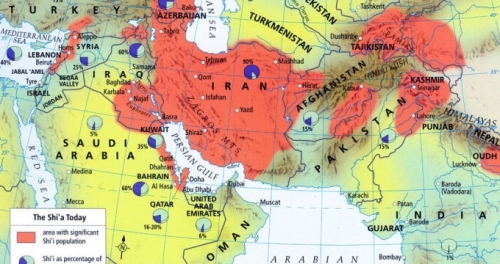
Princess Vittoria also emphasizes the fact that “ the Iranian revolution and Shi’a groups in the Middle East are today the only successful force of resistance to the US, and that causes them to be hated more than others. But only after all other Sunni opponents had been disposed of, killed, terrified (just think of Algeria, but there are dozens of other examples) or corrupted. This is of course not only my position, but that of most Islamologists today.”
The profane against the sacred
Knowing of Williams’ immense knowledge of Shi’a theology, and his expertise in Western philosophy, I prodded him to, literally, “go for the jugular”. And he delivered: “The question as to why American politicians are incapable of understanding Shi’a Islam (or Islam in general for that matter) is a simple one: unrestrained neoliberal capitalism engenders oligarchy, and the oligarchs “select” candidates that represent their interests before they are “elected” by the ignorant masses. Populist exceptions such as Trump occasionally slip through (or don’t, as in the case of Ross Perot, who pulled out under duress), but even Trump is then controlled by the oligarchs through threats of impeachment, etc. So the role of the politician in democracies seems not to be to try to understand anything but simply carry out the agenda of the elites who own them.”
Williams’ “go for the jugular” response is a long, complex essay that I’d like to publish in full only when our debate gets deeper – along with possible refutations. To summarize it, he outlines and discusses the two main tendencies in Western philosophy: dogmatists vs. skeptics; details how “the holy trinity of the ancient world were in fact the second wave of the dogmatists, trying to save the Greek city states and the Greek world more generally from the decadence of the Sophists”; delves into the “the third wave of skepticism”, which started with the Renaissance and peaked in the 17th century with Montaigne and Descartes; and then draws connections “to Shi’a Islam and the failure of the West to understand it.”
And that leads him to “the heart of the matter”: “A third option, and a third intellectual stream over and above the dogmatists and the skeptics, and that is the tradition of the traditional (as opposed to the philosophical) Shī’a scholars of religion.”
Now compare it with the last push of the skeptics, “as Descartes himself admits, by the ‘daemon’ which came to him in his dreams and which resulted in his writing his Discourse on the Method (1637) and Meditations on First Philosophy (1641). The West is still reeling from the blow, and it would seem has decided to put away its stilts of reason and the senses (which Kant tried in vain to reconcile, making things a thousand times worse and more convoluted and discombobulated), and just wallow in the self-congratulatory form of irrationalism known as post-modernism, which should rightly be called ultra-modernism or hyper-modernism as it is no less rooted in the Cartesian ‘Subjective Turn’ and the Kantian ‘Copernican Revolution’ than are the early moderns and the moderns proper.”
To summarize a quite complex juxtaposition, “what all this means is that the two civilizations have two utterly different views of what the world order should be. Iran believes that the order of the world should be what it has always been and actually is in reality, whether we like it or not, or whether we even believe in reality or not (as some in the West are wont not to do). And the secularized West believes in
a new worldly (as opposed to other-worldly or divine) order. And so it is not so much a clash of civilizations as it is a clash of the profane against the sacred, with profane elements in both civilizations arrayed against the sacred forces in both civilizations. It is the clash of the sacred order of justice versus the profane order of the exploitation of man at the hands of his fellow man; of the profaning of God’s justice for the (short-term or this-worldly) benefit of the rebels against God’s justice.”
Dorian Gray revisited
Williams does provide a concrete example to illustrate these abstract concepts: “The problem is that while everyone knows that the 19th and 20th century exploitation of the third world by Western powers was unjust and immoral, this same exploitation continues today. The continuation of this outrageous injustice is the ultimate basis for the differences that exist between Iran and the United States, which will ineluctably continue as long as the US insists on its exploitative practices and as long as it continues to protect its protectorate governments, who only survive against the overwhelming will of the people they rule because of the bullying presence of the US forces that are propping them up in order for them to continue to serve their interests rather than the interests of their peoples. It is a spiritual war for the establishment of justice and autonomy in the third world. The West can continue to look good in its own eyes because it controls the reality studio (of world discourse), but its real image is plain for all to see, even though the West continues to see itself as Dorian Gray did in Oscar Wilde’s only novel, as a young and handsome person whose sins were only reflected in his portrait. Thus the portrait reflects the reality which the third world sees every day, whereas the Western Dorian Gray sees himself as he is portrayed by the CNN’s and the BBC’s and the New York Times’s of the world.”
 “Western imperialism in Western Asia is usually symbolized by Napoleon Bonaparte’s war against the Ottomans in Egypt and Syria (1798–1801). Ever since the beginning of the 19th century, the West has been sucking on the jugular vein of the Moslem body politic like a veritable vampire whose thirst for Moslem blood is never sated and who refused to let go. Since 1979, Iran, which has always played the role of the intellectual leader of the Islamic world, has risen up to put a stop to this outrage against God’s law and will, and against all decency. So it is a process of revisioning a false and distorted vision of reality back to what reality actually is and should be: a just order. But this revisioning is hampered both by the fact that the vampires control the reality studio, and the ineptitude of Moslem intellectuals and their failure to understand even the rudiments of the history of Western thought, be this in its ancient, medieval, or modern period.”
“Western imperialism in Western Asia is usually symbolized by Napoleon Bonaparte’s war against the Ottomans in Egypt and Syria (1798–1801). Ever since the beginning of the 19th century, the West has been sucking on the jugular vein of the Moslem body politic like a veritable vampire whose thirst for Moslem blood is never sated and who refused to let go. Since 1979, Iran, which has always played the role of the intellectual leader of the Islamic world, has risen up to put a stop to this outrage against God’s law and will, and against all decency. So it is a process of revisioning a false and distorted vision of reality back to what reality actually is and should be: a just order. But this revisioning is hampered both by the fact that the vampires control the reality studio, and the ineptitude of Moslem intellectuals and their failure to understand even the rudiments of the history of Western thought, be this in its ancient, medieval, or modern period.”
Is there a chance to smash the reality studio? Possibly: “What needs to happen is for world consciousness to shift from the paradigm wherein people believe a maniac like Pompeo and a buffoon like Trump represent the paragon of normality, to a paradigm where people believe that Pompeo and Trump are just a couple of gangsters who go about doing whatever they please, no matter how disgusting and depraved, with almost complete and utter impunity. And that is a process of revisioning, and a process of awakening to a new and higher state of political consciousness. It is a process of rejecting the discourse of the dominant paradigm and of joining the Axis of Resistance, whose military leader was the martyr General Qāsem Soleymānī. Not least, it involves a rejection of the absurdity of the relativity of truth (and the relativity of time and space, for that matter; sorry, Einstein); and the abandonment of the absurd and nihilistic philosophy of humanism, and the awakening to the reality that there is a Creator, and that He is actually in charge. But of course, all this is too much for the oh-so-enlightened modern mentality, who knows better.”
There you go. And this is just the beginning. Input and refutations welcomed. Calling all informed souls: the debate is on.



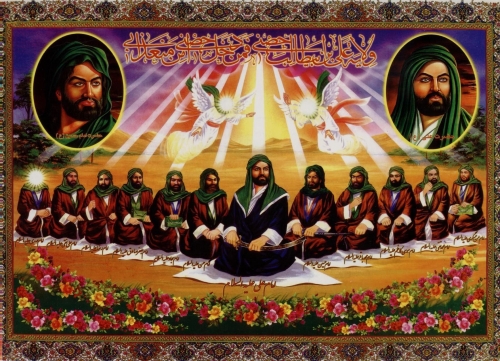

 del.icio.us
del.icio.us
 Digg
Digg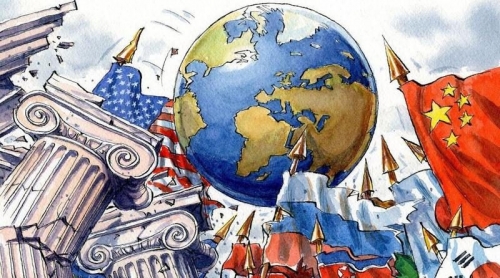
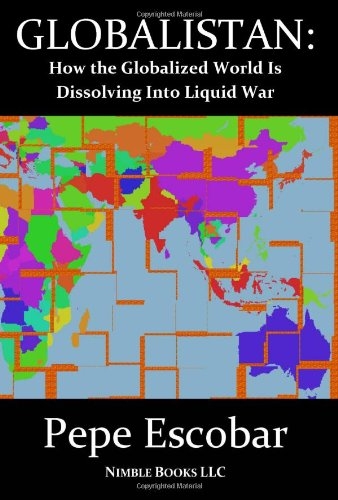
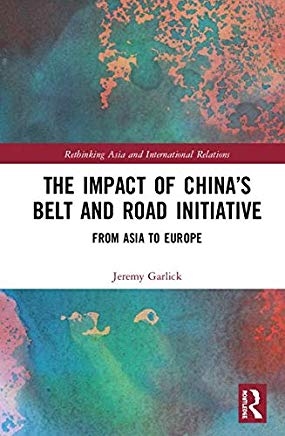 This is an extremely serious attempt to theorize Belt & Road’s immense complexity – especially considering China’s flexible, syncretic approach to policymaking, quite bewildering for Westerners. To reach his goal, Garlick gets into Tang Shiping’s social evolution paradigm, delves into neo-Gramscian hegemony, and dissects the concept of “offensive mercantilism” – all that as part of an effort in “complex eclecticism.”
This is an extremely serious attempt to theorize Belt & Road’s immense complexity – especially considering China’s flexible, syncretic approach to policymaking, quite bewildering for Westerners. To reach his goal, Garlick gets into Tang Shiping’s social evolution paradigm, delves into neo-Gramscian hegemony, and dissects the concept of “offensive mercantilism” – all that as part of an effort in “complex eclecticism.”
 Sourcé et documenté, mais en même temps décapant sans concessions et affranchi de tous les conventionnalismes, ce livre atypique sort résolument des sentiers battus de l’histoire des idées politiques. Son auteur, Dalmacio Negro Pavón, politologue renommé dans le monde hispanique, est au nombre de ceux qui incarnent le mieux la tradition académique européenne, celle d’une époque où le politiquement correct n’avait pas encore fait ses ravages, et où la majorité des universitaires adhéraient avec conviction, – et non par opportunisme comme si souvent aujourd’hui -, aux valeurs scientifiques de rigueur, de probité et d’intégrité. Que nous dit-il ? Résumons-le en puisant largement dans ses analyses, ses propos et ses termes:
Sourcé et documenté, mais en même temps décapant sans concessions et affranchi de tous les conventionnalismes, ce livre atypique sort résolument des sentiers battus de l’histoire des idées politiques. Son auteur, Dalmacio Negro Pavón, politologue renommé dans le monde hispanique, est au nombre de ceux qui incarnent le mieux la tradition académique européenne, celle d’une époque où le politiquement correct n’avait pas encore fait ses ravages, et où la majorité des universitaires adhéraient avec conviction, – et non par opportunisme comme si souvent aujourd’hui -, aux valeurs scientifiques de rigueur, de probité et d’intégrité. Que nous dit-il ? Résumons-le en puisant largement dans ses analyses, ses propos et ses termes: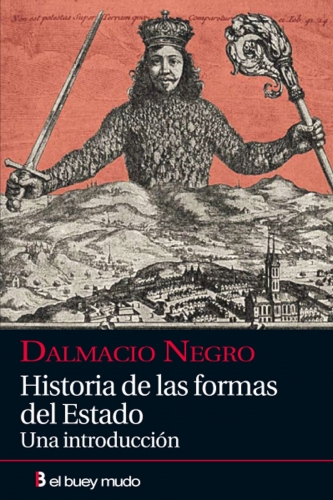 Une révolution a besoin de dirigeants, mais l’étatisme a infantilisé la conscience des Européens. Celle-ci a subi une telle contagion que l’émergence de véritables dirigeants est devenue quasiment impossible et que lorsqu’elle se produit, la méfiance empêche de les suivre. Mieux vaut donc, une fois parvenu à ce stade, faire confiance au hasard, à l’ennui ou à l’humour, autant de forces historiques majeures, auxquelles on n’accorde pas suffisamment d’attention parce qu’elles sont cachées derrière le paravent de l’enthousiasme progressiste.
Une révolution a besoin de dirigeants, mais l’étatisme a infantilisé la conscience des Européens. Celle-ci a subi une telle contagion que l’émergence de véritables dirigeants est devenue quasiment impossible et que lorsqu’elle se produit, la méfiance empêche de les suivre. Mieux vaut donc, une fois parvenu à ce stade, faire confiance au hasard, à l’ennui ou à l’humour, autant de forces historiques majeures, auxquelles on n’accorde pas suffisamment d’attention parce qu’elles sont cachées derrière le paravent de l’enthousiasme progressiste.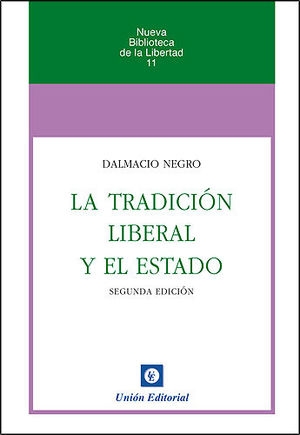 Le réaliste authentique affirme que la finalité propre à la politique est le bien commun, mais il reconnait la nécessité vitale des finalités non politiques(le bonheur et la justice). La politique est selon lui au service de l’homme. La mission de la politique n’est pas de changer l’homme ou de le rendre meilleur (ce qui est le chemin des totalitarismes), mais d’organiser les conditions de la coexistence humaine, de mettre en forme la collectivité, d’assurer la concorde intérieure et la sécurité extérieure. Voilà pourquoi les conflits doivent être, selon lui, canalisés, réglementés, institutionnalisés et autant que possible résolus sans violence.
Le réaliste authentique affirme que la finalité propre à la politique est le bien commun, mais il reconnait la nécessité vitale des finalités non politiques(le bonheur et la justice). La politique est selon lui au service de l’homme. La mission de la politique n’est pas de changer l’homme ou de le rendre meilleur (ce qui est le chemin des totalitarismes), mais d’organiser les conditions de la coexistence humaine, de mettre en forme la collectivité, d’assurer la concorde intérieure et la sécurité extérieure. Voilà pourquoi les conflits doivent être, selon lui, canalisés, réglementés, institutionnalisés et autant que possible résolus sans violence.
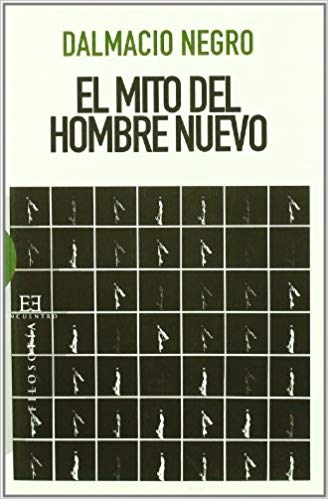 Cela étant, on peut être un sceptique ou un pessimiste lucide mais refuser pour autant de désespérer. On ne peut pas éliminer les oligarchies. Soit ! Mais, comme nous le dit Dalmacio Negro Pavón, il y a des régimes politiques qui sont plus ou moins capables d’en mitiger les effets et de les contrôler. Le nœud de la question est d’empêcher que les détenteurs du pouvoir ne soient que de simples courroies de transmission des intérêts, des désirs et des sentiments de l’oligarchie politique, sociale, économique et culturelle. Les hommes craignent toujours le pouvoir auquel ils sont soumis, mais le pouvoir qui les soumet craint lui aussi toujours la collectivité sur laquelle il règne. Et il existe une condition essentielle pour que la démocratie politique soit possible et que sa corruption devienne beaucoup plus difficile sinon impossible, souligne encore Dalmacio Negro Pavón. Il faut que l’attitude à l’égard du gouvernement soit toujours méfiante, même lorsqu’il s’agit d’amis ou de personnes pour lesquelles on a voté. Bertrand de Jouvenel disait à ce propos très justement: « le gouvernement des amis est la manière barbare de gouverner ».
Cela étant, on peut être un sceptique ou un pessimiste lucide mais refuser pour autant de désespérer. On ne peut pas éliminer les oligarchies. Soit ! Mais, comme nous le dit Dalmacio Negro Pavón, il y a des régimes politiques qui sont plus ou moins capables d’en mitiger les effets et de les contrôler. Le nœud de la question est d’empêcher que les détenteurs du pouvoir ne soient que de simples courroies de transmission des intérêts, des désirs et des sentiments de l’oligarchie politique, sociale, économique et culturelle. Les hommes craignent toujours le pouvoir auquel ils sont soumis, mais le pouvoir qui les soumet craint lui aussi toujours la collectivité sur laquelle il règne. Et il existe une condition essentielle pour que la démocratie politique soit possible et que sa corruption devienne beaucoup plus difficile sinon impossible, souligne encore Dalmacio Negro Pavón. Il faut que l’attitude à l’égard du gouvernement soit toujours méfiante, même lorsqu’il s’agit d’amis ou de personnes pour lesquelles on a voté. Bertrand de Jouvenel disait à ce propos très justement: « le gouvernement des amis est la manière barbare de gouverner ».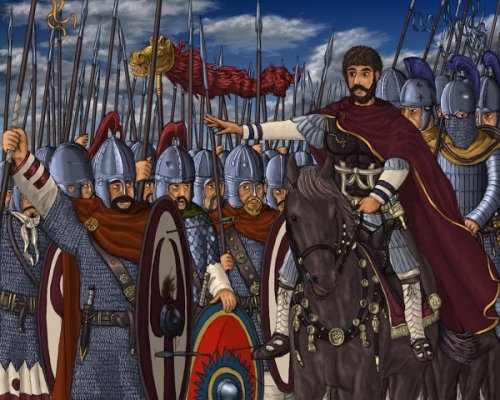
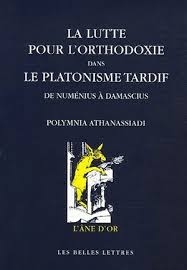 La période qui s’étend du IIIe siècle de l’ère chrétienne au VIe, ce qu’il est convenu d’appeler, depuis les débuts de l’Âge moderne, le passage de l’Antiquité gréco-romaine au Moyen Âge (ou Âges gothiques), fait l’objet, depuis quelques années, d’un intérêt de plus en plus marqué de la part de spécialistes, mais aussi d’amateurs animés par la curiosité des choses rares, ou poussés par des besoins plus impérieux. De nombreux ouvrages ont contribué à jeter des lueurs instructives sur un moment de notre histoire qui avait été négligée, voire méprisée par les historiens. Ainsi avons-nous pu bénéficier, à la suite des travaux d’un Henri-Irénée Marrou, qui avait en son temps réhabilité cette époque prétendument « décadente », des analyses érudites et perspicaces de Pierre Hadot, de Lucien Jerphagnon, de Ramsay MacMullen, de Christopher Gérard et d’autres, tandis que les ouvrages indispensable, sur la résistance païenne, de Pierre de Labriolle et d’Alain de Benoist étaient réédités. Polymnia Athanassiadi, professeur d’histoire ancienne à l’Université d’Athènes, a publié, en 2006, aux éditions Les Belles Lettres, une recherche très instructive, La Lutte pour l’orthodoxie dans le platonisme tardif, que je vais essayer de commenter.
La période qui s’étend du IIIe siècle de l’ère chrétienne au VIe, ce qu’il est convenu d’appeler, depuis les débuts de l’Âge moderne, le passage de l’Antiquité gréco-romaine au Moyen Âge (ou Âges gothiques), fait l’objet, depuis quelques années, d’un intérêt de plus en plus marqué de la part de spécialistes, mais aussi d’amateurs animés par la curiosité des choses rares, ou poussés par des besoins plus impérieux. De nombreux ouvrages ont contribué à jeter des lueurs instructives sur un moment de notre histoire qui avait été négligée, voire méprisée par les historiens. Ainsi avons-nous pu bénéficier, à la suite des travaux d’un Henri-Irénée Marrou, qui avait en son temps réhabilité cette époque prétendument « décadente », des analyses érudites et perspicaces de Pierre Hadot, de Lucien Jerphagnon, de Ramsay MacMullen, de Christopher Gérard et d’autres, tandis que les ouvrages indispensable, sur la résistance païenne, de Pierre de Labriolle et d’Alain de Benoist étaient réédités. Polymnia Athanassiadi, professeur d’histoire ancienne à l’Université d’Athènes, a publié, en 2006, aux éditions Les Belles Lettres, une recherche très instructive, La Lutte pour l’orthodoxie dans le platonisme tardif, que je vais essayer de commenter.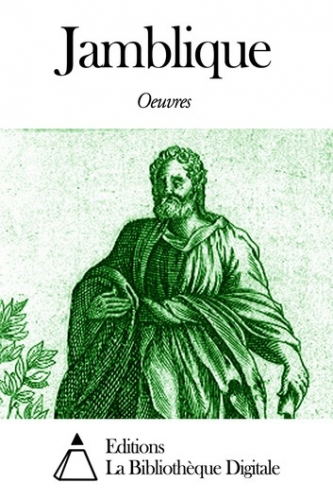 Pendant ces temps très troublés, où l’Empire accuse les assauts des Barbares, s’engage dans un combat sans merci avec l’ennemi héréditaire parthe, où le centre du pouvoir est maintes fois disloqué, amenant des guerres civiles permanentes, où la religiosité orientale mine l’adhésion aux dieux ancestraux, l’hellénisme (qui est la pensée de ce que Paul Veyne nomme l’Empire gréco-romain) est sur la défensive. Il lui faut trouver une formule, une clé, pour sauver l’essentiel, la terre et le ciel de toujours. Nous savons maintenant que c’était un combat vain (en apparence), en tout cas voué à l’échec, dès lors que l’État allait, par un véritable putsch religieux, imposer le culte galiléen. Durant trois ou quatre siècles, la bataille se déroulerait, et le paganisme perdrait insensiblement du terrain. Puis on se réveillerait avec un autre ciel, une autre terre. Comme le montre bien Polymnia Athanassiadi, cette « révolution » se manifeste spectaculairement dans la relation qu’on cultive avec les morts : de la souillure, on passe à l’adulation, au culte, voire à l’idolâtrie des cadavres.
Pendant ces temps très troublés, où l’Empire accuse les assauts des Barbares, s’engage dans un combat sans merci avec l’ennemi héréditaire parthe, où le centre du pouvoir est maintes fois disloqué, amenant des guerres civiles permanentes, où la religiosité orientale mine l’adhésion aux dieux ancestraux, l’hellénisme (qui est la pensée de ce que Paul Veyne nomme l’Empire gréco-romain) est sur la défensive. Il lui faut trouver une formule, une clé, pour sauver l’essentiel, la terre et le ciel de toujours. Nous savons maintenant que c’était un combat vain (en apparence), en tout cas voué à l’échec, dès lors que l’État allait, par un véritable putsch religieux, imposer le culte galiléen. Durant trois ou quatre siècles, la bataille se déroulerait, et le paganisme perdrait insensiblement du terrain. Puis on se réveillerait avec un autre ciel, une autre terre. Comme le montre bien Polymnia Athanassiadi, cette « révolution » se manifeste spectaculairement dans la relation qu’on cultive avec les morts : de la souillure, on passe à l’adulation, au culte, voire à l’idolâtrie des cadavres.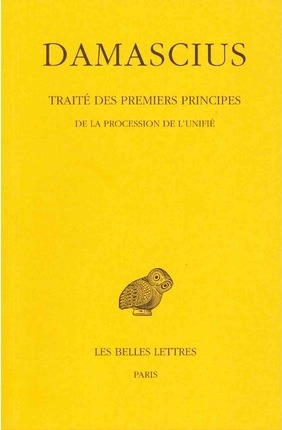 Que le monothéisme sémitique ait agi sur ce recentrement du divin sur lui-même, à sa plus simple unicité, cela est plus que probable, surtout dans cette Asie qui accueillait tous les brassages de populations et de doctrines, pour les déverser dans l’Empire. Néanmoins, il est faux de prétendre que le néoplatonisme fût une variante juive du platonisme. Il est au contraire l’aboutissement suprême de l’hellénisme mystique. Comme les Indiens, que Plotin ambitionnait de rejoindre en accompagnant en 238 l’expédition malheureuse de Gordien II contre le roi perse Chahpour, l’Un peut se concilier avec la pluralité. Jamblique place les dieux tout à côté de Dieu. Plus tard, au Ve siècle, Damascius, reprenant la théurgie de Jamblique et l’intellectualité de Plotin (IIIe siècle), concevra une voie populaire, rituelle et cultuelle, nécessairement plurielle, et une voie intellective, conçue pour une élite, quêtant l’union avec l’Un. Le pèlerinage, comme sur le mode chrétien, sera aussi pratiqué par les païens, dans certaines villes « saintes », pour chercher auprès des dieux le salut.
Que le monothéisme sémitique ait agi sur ce recentrement du divin sur lui-même, à sa plus simple unicité, cela est plus que probable, surtout dans cette Asie qui accueillait tous les brassages de populations et de doctrines, pour les déverser dans l’Empire. Néanmoins, il est faux de prétendre que le néoplatonisme fût une variante juive du platonisme. Il est au contraire l’aboutissement suprême de l’hellénisme mystique. Comme les Indiens, que Plotin ambitionnait de rejoindre en accompagnant en 238 l’expédition malheureuse de Gordien II contre le roi perse Chahpour, l’Un peut se concilier avec la pluralité. Jamblique place les dieux tout à côté de Dieu. Plus tard, au Ve siècle, Damascius, reprenant la théurgie de Jamblique et l’intellectualité de Plotin (IIIe siècle), concevra une voie populaire, rituelle et cultuelle, nécessairement plurielle, et une voie intellective, conçue pour une élite, quêtant l’union avec l’Un. Le pèlerinage, comme sur le mode chrétien, sera aussi pratiqué par les païens, dans certaines villes « saintes », pour chercher auprès des dieux le salut.